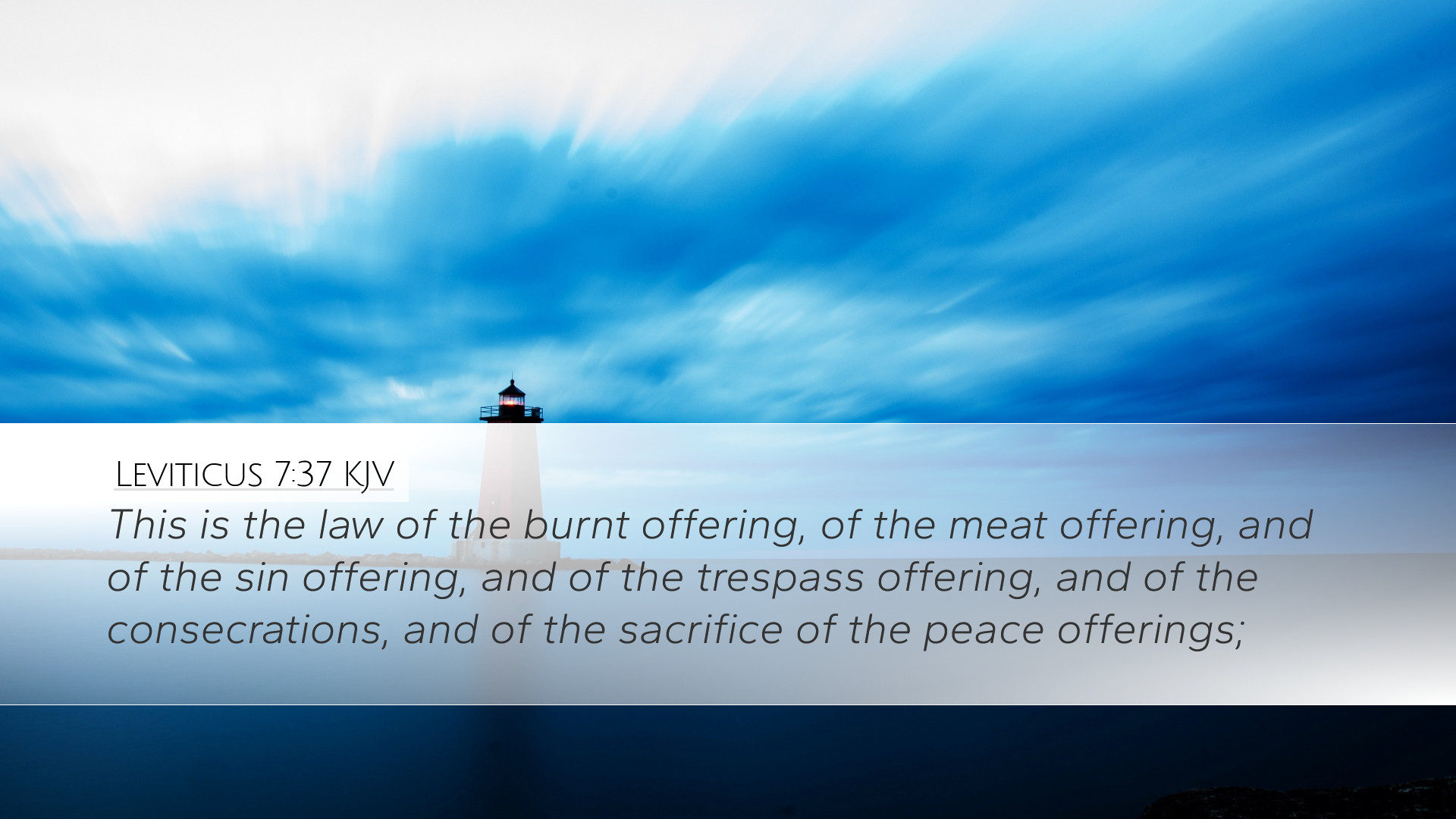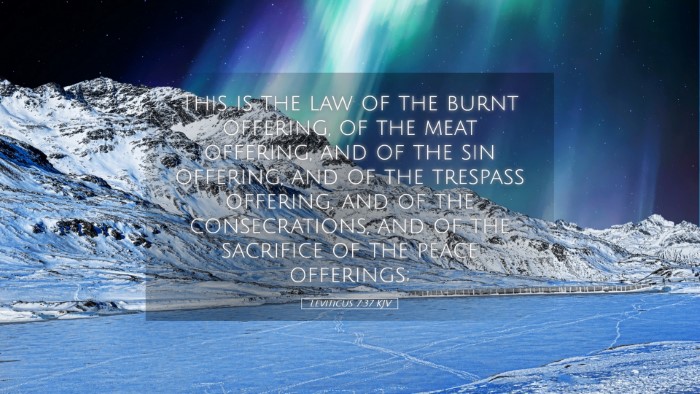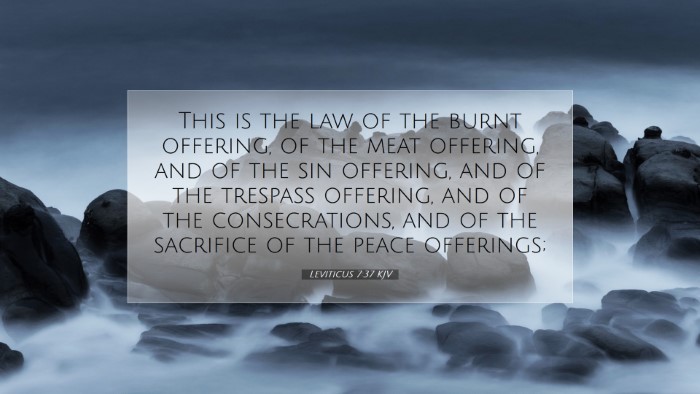Commentary on Leviticus 7:37
Verse Text: "This is the law of the offerings of the Lord; of the burnt offering, and of the meat offering, and of the sin offering, and of the trespass offering, and of the consecrations, and of the sacrifice of the peace offerings."
Introduction
Leviticus 7:37 concludes a section of diverse offerings prescribed in the law of Moses. It serves as a summative declaration of the various forms of sacrifices that the Israelites were to perform. This verse encapsulates the holistic nature of worship as prescribed in the sacrificial system, which is essential for understanding both the historical context of Israel and the theological implications for contemporary faith practices.
Summary of Key Offerings
The offerings highlighted in this verse serve distinct purposes in Israelite worship. Below is a brief overview derived from several public domain commentaries:
- Burnt Offering: Represents total devotion to God. The entire animal was consumed by fire, symbolizing complete surrender and atonement.
- Meat Offering (Grain Offering): Acknowledges God's provision and expresses gratitude. It often accompanied burnt offerings as a sign of commitment.
- Sin Offering: For the atonement of unintentional sins. It signifies the need for reconciliation with God and the acknowledgment of human imperfection.
- Trespass Offering: Similar to sin offerings but specifically for unintentional wrongs involving others, emphasizing restoration.
- Consecrations: Rituals associated with dedicating persons or objects to God’s service, further illustrating the aspect of holiness in the life of worshippers.
- Peace Offerings: Express gratitude and maintain fellowship with God. They featured a shared meal between god, priest, and offeror—symbolizing harmony.
Theological Implications
The myriad of offerings indicates God's insistence on approaching Him through ordained means, facilitating access to divine presence. By isolating these offerings, Leviticus emphasizes the systematic and structured nature of worship that God requires from His people.
- Holiness of God: Each offering points to God's holiness, reminding worshippers that they cannot approach Him lightly or on their own terms.
- Atonement:** The law illustrates God’s provision for the cleansing of sin, exemplifying the need for mediation and substitution—concepts fulfilled in the New Testament through Christ.
- Community Aspect: Many offerings require communal gathering, enforcing the importance of the community of faith in worship and sustaining relationships.
- Gratitude and Restoration: Offers a clear view of God’s desire for a relationship that includes expressions of thanks and restoration, not merely obligation.
Historical Context
Understanding the historical backdrop of Leviticus enriches our comprehension of this verse. The Israelites, freshly liberated from Egypt, needed a framework to define their worship and identity as God’s chosen people. The detailed instructions on offerings were thus critical.
Insights from Commentators
Matthew Henry
Henry notes that the detailed enumerations of the offerings function as a guideline for the Israelites, stressing the importance of ceremonial cleanliness and orderliness in their approach to God. He emphasizes that these laws illustrate the character of God—a God who is both just and merciful, requiring holiness while providing ways to reconcile our failures.
Albert Barnes
Barnes underscores the notion that these offerings reflect God’s covenantal relationship with Israel. He elaborates that the sacrifices serve as reminders of Israel’s identity and their obligations towards God and each other. Each act of sacrifice was not simply a duty but a meaningful engagement with God.
Adam Clarke
Clarke offers a detailed analysis of the offerings’ purposes, noting that they are integral to maintaining order within societal and individual aspects of worship. He frames these offerings in light of societal necessity: they cultivate community, encourage moral behavior, and affirm God’s sovereignty over Israel.
Conclusion
Leviticus 7:37 serves as a critical passage, summarizing various sacrificial laws while inviting deeper theological reflection. It emphasizes God's requirement for reverent worship characterized by obedience, gratitude, and community. The implications of these laws endure, inviting modern believers to recognize the depth of Christ’s sacrifice and the continuing relevance of structured worship in drawing near to God.


